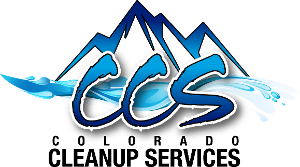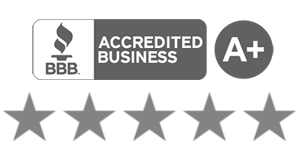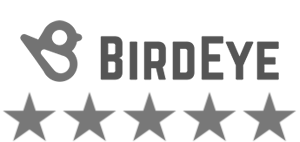Professional Mold Removal Contractors in Denver & Surrounding Areas
Mold can start growing in as little as 72-96 hours after a water event. In Colorado, this rapid mold growth can create serious health and property risks that require professional removal.
Mold and mildew are insidious contaminants that compromise the safety and integrity of indoor spaces. Flooding, leaks, and other incidents can cause mold to grow, but other situations can help mold spores spread and thrive, leading to health risks and property damage. Serious consequences may accompany even the most minor signs of mold. Get rid of mold in your HVAC system and home with affordable, trustworthy contractors and professional mold removal services in Denver, CO, and surrounding areas.
Both homeowners and business owners trust our mold remediation specialists. Our team has years of experience and knowledge in mold cleanup services to make your home or office safe again. We also specialize in mold prevention, allowing us to help clients avoid fungus reoccurrences in water-damaged interior spaces.
Remove Mold From Your Home
Unchecked mold growth can put the health of the entire household in jeopardy. Mold infestations can cause serious health issues, such as asthma, increased allergies, and much more. Contact a local mold cleanup company for mold inspection and air quality testing as soon as possible. During mold inspection and testing, our professionals will use specialized equipment and check for signs of mold in your home or business, including mold-damaged belongings.
Emergency Actions Before Professional Mold Removal Arrives
Immediate Steps to Take
- Shut Down Air Circulation Systems:Immediately turn off your heating, cooling, and ventilation systems to prevent mold spores from circulating throughout your Denver home or business.
- Create a Safety Barrier:Keep family members, employees, and pets away from the contaminated area. If possible, seal off the affected room using plastic sheeting and tape to minimize exposure.
- Address the Moisture Source:If you can safely identify and stop the water source causing the mold growth, do so immediately. This might include shutting off water to a leaking pipe or placing containers under roof leaks.
- Document the Damage:Take photographs of the affected areas for insurance purposes, but maintain a safe distance from visible mold growth.
Critical Actions to Avoid
- Never Handle Mold Directly:Avoid touching, moving, or disturbing mold-contaminated materials as this releases dangerous spores into the air.
- Don’t Use Household Cleaning Products:Bleach, disinfectants, and other common cleaners can actually make mold problems worse by spreading spores or creating toxic gas combinations.
- Avoid DIY Drying Attempts:Don’t use fans, hair dryers, or other equipment to dry moldy areas as this spreads contamination to previously unaffected spaces.
- Don’t Cover or Hide the Problem:Never paint over mold or attempt to cover it with other materials, as this doesn’t eliminate the underlying moisture issue.
- Avoid Prolonged Exposure:Limit time spent in contaminated areas and never sleep or work in spaces with visible mold growth until professional remediation is complete.
Common Causes of Mold and Mildew
Dark and damp spaces are the perfect breeding ground for mold, mildew, and fungi. Even the slightest forms of moisture allow the contaminants to continue growing and spreading. The following incidents may all result in water damage, eventually leading to mold growth:
FloodingOften leads to large-scale moisture accumulation, creating the perfect breeding ground for mold. | Roof LeaksWater entering your home from a damaged roof can lead to damp conditions that invite mold spores to settle. | Burst PipesSudden water release from a burst pipe often caused by freezing temperatures and expanding water in the lines can quickly soak building materials, creating ideal conditions for mold growth. | Faulty Plumbing/Plumbing LeaksLeaking pipes or poor drainage systems can create hidden areas of moisture that promote mold growth. | Condensation BuildupFrequent moisture buildup due to temperature changes or lack of ventilation can easily result in mold. |
In Denver, Colorado, residents often deal with mold growth because of the changing weather. Seasonal changes, particularly during summer months, create specific conditions where mold loves to grow in certain areas of homes and businesses. We are the top mold removal specialists in the Denver, CO area, offering effective solutions to eliminate mold and restore a healthy environment in your home or business.
When Sewage or Black Water Contamination Is Involved
Mold growth following a sewage backup or black water event requires a different approach than standard mold remediation. The primary concern is pathogenic contamination from raw sewage, not just fungal growth. Professional sewage cleanup and black water remediation must be completed first this includes water extraction, material removal, and disinfection before mold remediation begins.
Attempting to address mold without first handling sewage contamination will not solve the underlying problem and leaves your property unsafe. Our team can coordinate with sewage cleanup specialists to ensure your property is fully remediated and safe to occupy again.
Importance of Prompt Mold Removal
Fungus can pose serious health risks and damage your property if not removed promptly. Emergency mold removal services are essential when mold spreads rapidly due to water damage restoration delays. At Colorado Cleanup Service, we specialize in fast and efficient commercial and residential mold removal, preventing further contamination and deterioration.
Our certified mold removal contractors use advanced equipment and proven techniques to find and remove mold from your property. We adhere to industry best practices to ensure thorough and effective mold elimination.
Safe and Effective Mold Remediation Services
Safety is our top priority. Our experts have strict safety protocols in place to protect everyone during the mold removal process. We use professional-grade protective gear and containment measures to prevent the spread of mold spores to unaffected areas. Our remediation process includes:
- Containment: Isolating the affected area to prevent cross-contamination.
- Removal: Safely remove mold-infested materials and dispose of them properly.
- Cleaning: Using specialized cleaning agents to thoroughly clean and disinfect surfaces.
- Drying: Employing industrial-grade dehumidifiers and air movers to dry out the area and eliminate moisture.
Mold Remediation Process Step-by-Step
Our Denver mold removal process follows industry-standard protocols based on the Environmental Protection Agency’s Mold Remediation in Schools and Commercial Buildings guidelines. These proven methods ensure effective, safe mold removal regardless of the size and complexity of the contamination.
1. Inspection and Assessment:
- Initial Assessment: A thorough inspection of the property to identify visible mold and moisture sources in your Denver home.
- We test for mold by taking air and surface samples to find out what type and how much mold is present. This helps us effectively remove mold in Denver.
2. Containment:
- Isolate the mold-affected area with barriers and air pressure to stop it from spreading to other areas.
- Workers in Denver use protective gear, such as PPE, to avoid exposure to mold spores during mold removal.
3. Filtration:
- Air Scrubbing: High-efficiency particulate air (HEPA) filters are used to capture mold spores from the air.
- Ventilation: Improving airflow to reduce humidity levels and remove mold spores, is a key step in mold remediation in Denver.
4. Mold Removal:
- Denver mold experts remove and dispose of porous materials like drywall and insulation that they cannot clean properly.
- Clean non-porous and semi-porous materials using antimicrobial and antifungal treatments.
5. Drying and Dehumidification:
- To dry affected areas, use strong dehumidifiers and fans to completely dry the area and reduce moisture levels. This is important for effective mold removal in Denver.
- Check moisture levels regularly to keep the environment dry and prevent mold growth during mold remediation in Denver.
6. Repairs and Restoration:
- Rebuilding and Repairing: Replace removed materials and repair any damage caused by mold or the remediation process.
- Repainting and Finishing: Restore the affected area to its original condition, including repainting and refinishing surfaces, to complete the Denver mold removal process.
7. Final Inspection and Testing:
- Denver experts will check the air quality after removing mold to ensure that they have eliminated all mold.
- Customer Walkthrough: Provide a walkthrough with the customer to explain the work done and any preventive measures.
Specialized Treatments for Different Mold Types
Not all molds are the same, and each type requires a specific approach to effectively remove and prevent it from coming back. Understanding the different types of mold and the treatment methods they require is crucial for proper mold remediation.
- Common Locations: Found in dust, air conditioning systems, and on food.
- Treatment: HEPA vacuuming, antimicrobial sprays, and removal of contaminated materials by Denver mold experts. Increase ventilation and reduce humidity to prevent regrowth.
- Common Locations: Often found on wood, textiles, and other damp, porous materials.
- Treatment: Dry and clean affected areas using biocides. Remove and replace any heavily contaminated materials, a common step in mold remediation in Denver.
- Common Locations: Found on paper, wood, and materials with high cellulose content.
- Treatment: Use strong antifungal solutions and remove contaminated materials. Address moisture issues immediately to prevent recurrence, essential for Denver mold removal.
- Common Locations: Commonly grows on water-damaged materials, including wallpaper, carpet, and insulation.
- Treatment: Thorough cleaning with antifungal treatments, HEPA vacuuming, and removal of affected materials. Control humidity levels to ensure effective mold remediation in Denver.
- Common Locations: Found in showers, sinks, and dark, damp areas.
- Treatment: Clean surfaces with antifungal solutions, improve ventilation, and fix leaks to eliminate moisture sources, a key part of Denver mold removal.
- Common Locations: Common on drywall, wallpaper, and other water-damaged materials.
- Treatment: Use antimicrobial treatments, remove and replace damaged materials, and ensure thorough drying of the area, critical for mold remediation in Denver.
Preventive Measures
Prevention is key to keeping your property mold-free. Control indoor humidity, improve ventilation, and fix leaks immediately to avoid costly mold remediation in the future. Our mold experts will guide you through the best strategies to protect your home or business.
Maintaining a mold-free environment involves proactive steps:
- Humidity Control: Keep indoor humidity levels below 60% to prevent mold growth in your Denver home. Understanding the relationship between moisture levels and mold prevention helps homeowners maintain optimal conditions year-round.
- Ventilation: Use exhaust fans in bathrooms and kitchens to improve ventilation, a preventive measure recommended by Denver mold experts.
- Regular Inspections: Conduct routine inspections for signs of mold and address any water leaks or moisture issues immediately to avoid the need for extensive Denver mold removal.
- Proper Drainage: Ensure proper drainage around the foundation of the building to prevent water intrusion, a common cause of mold issues in Denver.
Follow these steps and treatments to efficiently remove mold and create a safe, mold-free environment in Denver.
Why Choose Colorado Cleanup Services for Mold Remediation?
Choosing the right company makes all the difference in mold removal success. At Colorado Cleanup Services, we offer industry-leading expertise in mold remediation services throughout Denver, CO, and surrounding areas.
- Certified Specialists: Our team consists of certified mold remediation experts with extensive experience in handling mold issues in Denver, Colorado, and nearby areas.
- Advanced Technology: We use the latest technology and equipment to ensure effective mold removal and prevention.
- Customer Satisfaction: We are committed to providing top-notch mold removal and testing services and ensuring the satisfaction and safety of our clients.
- 24/7 Emergency Services: Mold issues can arise at any time. We offer 24/7 emergency mold remediation services to address urgent mold problems promptly.
Mold Removal FAQ
Yes. Stachybotrys chartarum, often called black mold, produces mycotoxins that can cause serious respiratory issues, allergic reactions, and other health problems, especially in children and those with compromised immune systems. Immediate professional removal is recommended if you suspect black mold in your property.
No. Bleach only kills surface mold on non-porous materials. On porous surfaces like drywall and wood, the chemical structure of bleach prevents it from penetrating deep enough to kill the mold roots. Additionally, the water in bleach can actually feed the remaining mold roots, often causing the mold to return stronger.
If the underlying moisture source is fixed, mold should not return. Our remediation process includes identifying and addressing the water source (leaks, humidity, etc.). However, if new water damage occurs or humidity levels aren’t controlled, mold can grow again. We provide prevention strategies to help keep your property mold-free.
Hidden mold often reveals itself through a musty, earthy odor or unexplained allergic reactions (sneezing, itchy eyes, coughing) when indoors. You might also see water stains or peeling wallpaper. If you suspect hidden mold, our professional inspection and testing can confirm its presence without unnecessary demolition.
Commercial Mold Remediation for Business Properties
Mold in commercial buildings threatens employee health and disrupts operations. Colorado Cleanup Services provides advanced mold detection and IICRC-certified remediation for office buildings, healthcare facilities, educational campuses, and property management firms.
We use thermal imaging and moisture mapping to identify hidden mold, contain affected areas, safely remove contaminated materials, and prevent recurrence through comprehensive assessment and dehumidification.
Contact Us Today
Don’t let mold compromise the safety and integrity of your home or business. Don’t try to remove mold yourself.
At Colorado Cleanup Services, we offer trustworthy and professional mold remediation services in Denver, Colorado, and surrounding areas.
Don’t wait until the damage is done. Contact Colorado Cleanup Services now for reliable, efficient mold removal in Denver. We’re available 24/7 to ensure your property is mold-free and safe.





